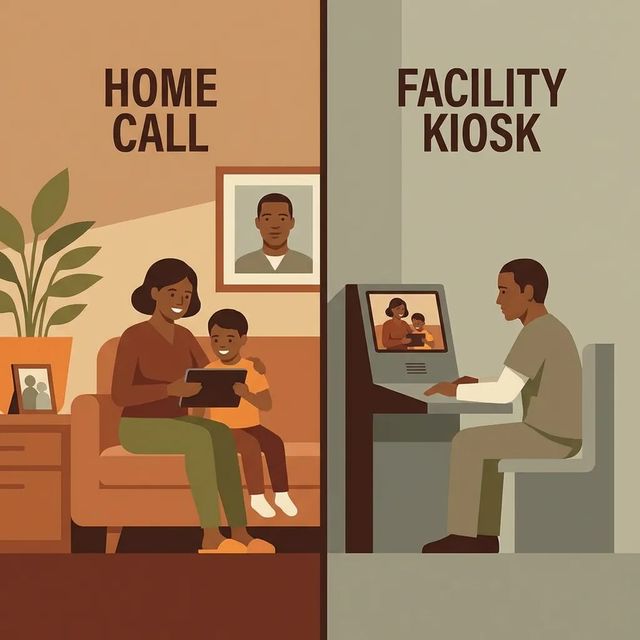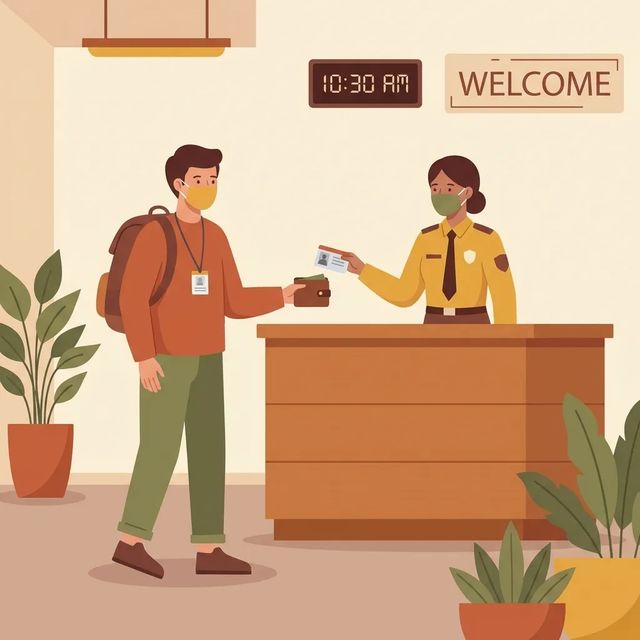FCI Milan, MI
Explore
Find an Inmate at FCI Milan, MI
Search for a loved one and send messages and photos in minutes.

Guides for This Facility

How to Find Out Where Someone Is Located When FCI Milan Shows "Not in BOP Custody"
The Bureau of Prisons (BOP) Inmate Locator tracks people incarcerated in the federal system from 1982 to the present. If you're searching for someone connected to FCI Milan and the results aren't what you expected, here's the key thing: the locator only covers BOP custody. It's not a master directory for every jail, prison, or law-enforcement agency in the country.
Read Guide
How TRULINCS and Phone Calls Work for Someone at FCI Milan
At FCI Milan, TRULINCS is the Bureau of Prisons’ electronic messaging system. It works more like a monitored message kiosk than regular email: messages are text-only, and attachments aren’t allowed.
Read Guide
What You Can and Can't Bring When Visiting Someone at FCI Milan: A Practical Checklist
Want your visit at FCI Milan to go smoothly? Focus on three things: get approved beforehand, dress conservatively, and leave prohibited items at home.
Read GuideAt a Glance
Visitation
- You must be on the inmate’s approved visiting list and be cleared by the Bureau of Prisons before visiting FCI Milan.
- By entering or attempting to enter Bureau grounds visitors consent to being searched; refusal can bar entry.
- BP‑A0224 lists prohibited visitor items including weapons, explosives, drugs, cameras, recording equipment, telephones, radios, pagers, and other electronic devices.
Communication
- Inmates at FCI Milan must place outgoing calls themselves; third‑party or alternative call arrangements are prohibited.
- Calls from FCI Milan are generally paid by the inmate or sometimes by the call recipient.
- TRUFONE retains FCI Milan call recordings on its system for 180 days (or longer if legally/administratively required).
Mail & Letters
- Written correspondence is classified as general (opened and inspected) or special (opened only in the inmate's presence).
- Inmates may not receive packages from home without prior written approval; exceptions include release clothing and authorized medical devices and certain books/magazines.
- Legal mail is handled separately and is typically opened only in the inmate's presence.
Sending Money
- MoneyGram payments to FCI Milan must use the inmate’s eight-digit register number followed immediately by their last name as the account number (example: 12345678DOE).
- The Trust Fund/Deposit Fund Manual (P4500.12) revision includes healthy commissary food options and standardized female/transgender commissary items.
- Common ways to add money include online, phone, and facility kiosks, though accepted methods and uses (commissary, phone, messaging, fees) vary by facility.
Inmate Lookup
- TRULINCS electronic messaging requires the inmate's approval, allows only text messages, and does not permit attachments.
- Written correspondence is classified as general (opened and inspected) or special (opened only in the inmate's presence and inspected for contraband and enclosure qualification).
- Inmates generally may not receive packages from home without prior written approval; certain items like release clothing or authorized medical devices are exceptions.
Based on official sources and community feedback. Learn how we verify
Topic Overviews
Visitation
Before visiting FCI Milan, you must be on the inmate's approved visiting list and cleared by the Bureau of Prisons. Check the facility's visitor procedures for exact steps and timeframes. When you arrive, expect to be searched—entering (or even attempting to enter) Bureau grounds means you're consenting to a search. Refuse, and you won't get in. Dress standards are enforced, and BP‑A0224 prohibits weapons, explosives, drugs, cameras, recording equipment, telephones, radios, pagers, and other electronic devices. The visiting area and restrooms may be monitored. Inmates are guaranteed at least four hours of visiting time per month, though the Warden can limit visit length or visitor numbers to maintain order.
Read full guideCommunication
FCI Milan offers phone calls and TRULINCS electronic messaging. All calls must be placed by the incarcerated person—third‑party or alternative billing isn't allowed. The inmate typically pays, though sometimes the recipient does. Calls are recorded through TRUFONE and kept for 180 days (longer if needed for legal or administrative reasons). TRULINCS is a controlled messaging system—no internet access. The inmate must approve you as a contact first. Messages are text-only (no attachments), limited to 13,000 characters, and all content is screened and monitored.
Read full guideMail & Letters
FCI Milan handles mail in two categories: general mail (opened and inspected) and special mail (opened only with the inmate present, then checked for contraband and whether enclosures qualify). Packages from home usually aren't allowed without prior written approval. Exceptions may include release clothing, authorized medical devices, and books or magazines sent directly from approved sources. Legal mail is handled separately and typically opened only in the inmate's presence. Address letters with the resident's full name and ID/booking number, plus your complete return address. Skip staples, stickers, glued items, food, and cash—they're prohibited. Some federal facilities also offer screened electronic messaging, so check official options before sending physical mail.
Read full guideSending Money
For MoneyGram transfers to FCI Milan, use the inmate's eight-digit register number followed immediately by their last name as the account number (example: 12345678DOE). Deposited funds can typically cover commissary purchases, messaging, phone time, or certain fees—depending on what the facility and payment service allow. Most people pay online, by phone, or through facility kiosks. Whichever method you choose, take your time: select the correct facility and resident, pick a deposit type (commissary, bond, or bill), and enter the inmate's identifiers exactly as requested. The Trust Fund/Deposit Fund Manual revision also includes updates like healthy commissary food options, standardized female/transgender commissary items, and updated TRULINCS language.
Read full guideCommon Questions
Showing 6 of 15How do I get on an inmate's approved visiting list at FCI Milan?
First, get on the inmate's approved visiting list and be cleared by the Bureau of Prisons. Then follow FCI Milan's registration and scheduling process—check the facility's visitor instructions for exact steps and timing.
VisitationWhat can I not bring when visiting someone at FCI Milan?
BP‑A0224 lists prohibited items including weapons, explosives, drugs, cameras, recording equipment, telephones, radios, pagers, and other electronic devices. Inappropriate or provocative clothing can also get your visit denied.
VisitationWill visitors be searched or monitored during visits at FCI Milan?
Yes. Entering or attempting to enter Bureau grounds means you consent to a search. Refuse, and you won't be allowed in. The visiting area and restrooms may also be monitored.
VisitationHow long does FCI Milan keep phone call recordings?
TRUFONE retains FCI Milan call recordings on its system for 180 days. Recordings may be kept longer if required for legal or administrative purposes.
CommunicationCan I set up third‑party billing so an inmate's calls go to my number at FCI Milan?
No. FCI Milan prohibits third‑party or alternative call arrangements. Calls are placed by the inmate and are generally paid by the inmate or, in some cases, the recipient.
CommunicationWhat limits and permissions apply to TRULINCS messaging at FCI Milan?
TRULINCS requires the inmate to approve you as a contact first—there's no internet access. Messages are text-only with no attachments, capped at 13,000 characters. Everything is screened and monitored.
CommunicationMore Guides
Ready to Connect?
Search for your loved one to start communicating today
Did You Know?
FCI Milan follows standard BOP telephone policy. Inmates can make calls, but third-party or alternative call arrangements aren't allowed. The inmate typically pays for calls, though sometimes the recipient covers the cost. Call access may be limited, and posted notices warn that routine calls are monitored. Attorney calls can be unmonitored in certain circumstances.
This guide is based on feedback from 70 families and official facility documentation. Learn how we verify
